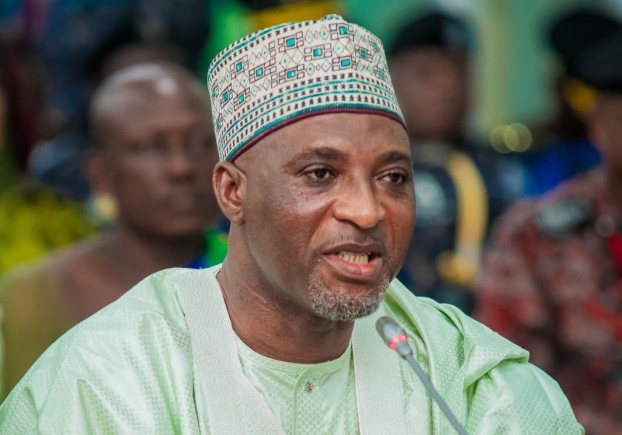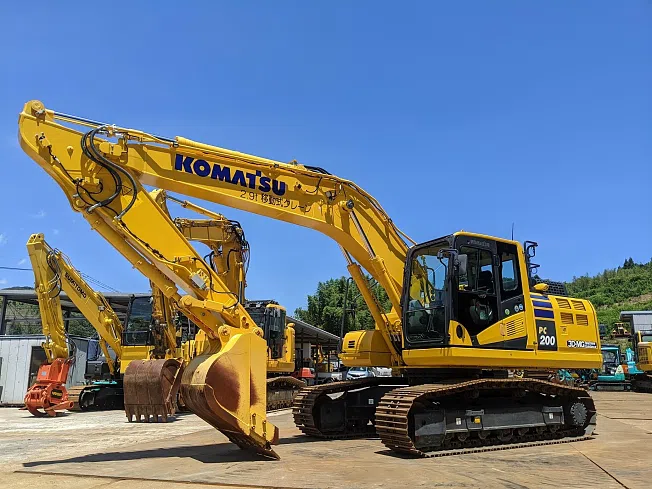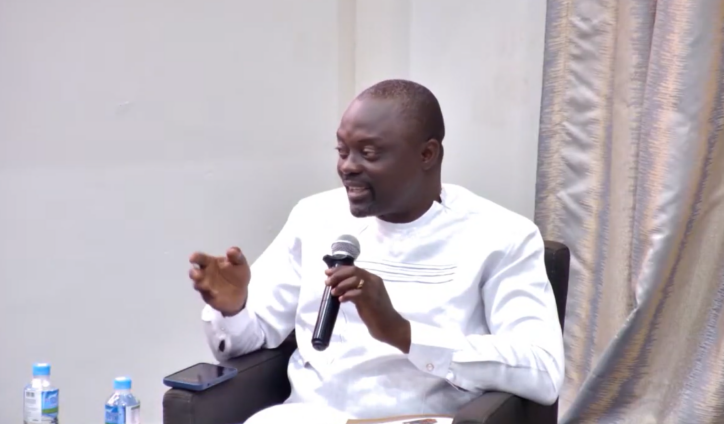A major turning point in Ghana’s relentless battle against illegal mining, popularly known as galamsey, may be on the horizon as the government enforces a new directive that mandates the registration of all machinery used in mining activities by August 1, 2025.
According to investigative journalist Erastus Asare Donkor, this single measure could transform the country’s fight against the menace, which has caused widespread environmental destruction and social dislocation.
“This is a game changer! If we are able to enforce this and follow it up with tracking of all excavators, we will be 50 per cent across the line in fighting this canker!”
Erastus Asare Donkor
The new directive, issued by the Ministry for the Interior and signed by Minister Muntaka Mohammed-Mubarak, requires that every piece of machinery used in mining, including excavators and bulldozers, must be registered with the Driver and Vehicle Licensing Authority (DVLA) by the stated deadline.

Starting August 2, 2025, any equipment found to be operating without the appropriate registration will be seized by the state. Hon. Muntaka emphasised that the move is part of sweeping reforms in the mining sector under the administration of President John Dramani Mahama.
The Minister also made it clear that the Ghana Police Service and the DVLA have been tasked to rigorously enforce the directive beginning August 2.
He urged all mining operators and members of the public to take note and comply accordingly. “The Ministry of the Interior is committed to ensuring internal security and the maintenance of law and order in the country,” the statement added.
The new policy is being widely lauded as one of the most concrete and pragmatic steps taken so far in the fight against galamsey, as it is believed that it targets one of the most elusive aspects of illegal mining—the machinery that enables destruction on an industrial scale.
The role of unregulated machinery, especially excavators, in illegal mining operations cannot be overstated. These machines are frequently smuggled into remote forested areas where they are used to dredge riverbeds and uproot large swaths of land, leaving behind devastated landscapes, poisoned rivers, and ruined farmlands.

By mandating registration, the government aims to eliminate the anonymity that has allowed these operations to flourish.
The policy follows a string of bold interventions by the new National Democratic Congress (NDC) administration led by President Mahama and the Minister for Lands and Natural Resources, Emmanuel Armah Kofi Buah.
Since assuming office on January 7, 2025, the government has revoked mining licenses issued by the previous New Patriotic Party (NPP) administration post-election, formed a committee to review all mining leases issued in recent years, and terminated the controversial community mining scheme.
Dozens of illegal miners have been arrested and multiple excavators seized in operations carried out by the national anti-galamsey task force. But despite these efforts, illegal mining remains rampant, particularly in some parts of the country.
President Mahama, in a recent address, described the environmental devastation caused by galamsey as a “national emergency” and pledged to escalate the national response.
The registration directive is expected to bolster the government’s ability to trace and monitor the movement and use of heavy machinery, something that has previously hindered law enforcement operations.
Without a clear mechanism for tracking equipment, illegal operators have easily moved from one location to another, eluding detection and prosecution.
The success of this initiative will depend heavily on enforcement. In the past, similar directives have failed due to political interference, logistical challenges, and corruption.

If the Ghana Police Service and DVLA are empowered to act—and public attention is sharply focused on the government’s handling of the galamsey crisis—there is renewed hope that the tide might finally be turning.
Erastus Asare Donkor, whose investigative journalism has exposed the depth of illegal mining’s grip on Ghana, remains cautiously optimistic.
As the August 1 deadline draws closer, it is expected that the Ministry of the Interior, the DVLA, and the Ghana Police Service will see that this bold new step can be the decisive blow against one of Ghana’s most enduring crises.
READ ALSO: President Mahama Thanks Ashanti Region, Pledges Big Push for Development

















